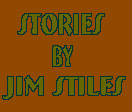

RIDING WITH HERB RINGER
When my friend Herb Ringer died three years ago at the age of 85, it was the end of an era for me. Remarkably--and appropriately, I'd say--he passed away on my birthday. Since our first meeting at the Arches National Park campground in the early 1980s, we had become and would remain loyal friends and kindred spirits. Although many decades separated our ages, we were of the same time in so many ways.
Herb was, in fact, my Time Machine. He remembered everything. I could randomly toss out a date and he could tell me where he was and what he was doing and who he knew. He remembered how it felt to be alive at that moment. Herb connected me to a simpler time that I found (and still find) myself longing for, a time that occurred years before my own birth.
And he documented everything. Beginning with his first trip across the country to Reno from New Jersey in 1938, to Herb's last cross-country journey in 1994, he missed nothing. His photographs are not just of the scenery but of Americans who traveled across it. While we snapped pictures of Delicate Arch or the Grand Teton, Herb turned the camera back on us. His collection of photographs are of gas stations and cafes and parking lots and old motels and dilapidated buildings. He recorded the crowds of tourists before they could be called "crowds." I recently found a color slide of the Grand Canyon viewpoint in front of the Bright Angel Lodge. On a bright day in May, about ten people lined the rock wall that hugs the South Rim. No pushing and shoving to get a glimpse of the Inner Canyon back then.
In almost every snapshot, you'll find Herb's mother and father. After he had established himself in Reno and found work at a local grocery, Herb drove east again and returned with his aging parents--he took care of them for the rest of their lives. Joseph and Sadie helped out at the Washoe Market during the long six-day work week, but on Saturday afternoons, the Ringers often climbed into the family car (in 1942 it was a Lincoln Zephyr), drove into the Sierra foothills west of Carson City, and camped at a place called Hope Valley. Over the years, they returned again and again to the same campsite, to the same stone fireplace that Herb and his father constructed at the edge of a meadow in 1942. When I took Herb back to Hope Valley for one last look in 1995, he was able to tell me that it was his 260th visit. He didn't forget a thing.
During the war, Herb found that running a market had certain advantages. He was never short of gasoline rationing stamps, he once explained with a wink, because women were willing to trade practically anything for sugar. The Great Basin was empty beyond anything we can imagine today and when he wasn't traveling to Hope Valley with his folks, Herb spent many Sunday afternoons exploring old mines and ghost towns.
On December 7, 1941, according to his notes, I can tell you that Herb traveled exactly 165 miles, that he left Reno at 7:50 am, and that he spent some time that morning exploring the Boot Hill cemetery in Virginia City--he was concerned about its "tumble-down appearance." Herb poked about the ruins of old Fort Churchill and from a high point along the road marveled at the "vast desert of high range country, stretching as far as the eye can see."
That evening he "saw the lights of Reno for the first time at night from this high spot and it presented a beautiful sight." Then, almost as an afterthought, he reports, "Thence down into town and found the extras on the street, declaring Hawaii had been bombed by the Japanese."
When his eyesight started to fail in the mid-1990s, Herb had to give up driving. By his estimate, he had traveled more than a million miles in America and Canada over 60 years. He surrendered his license with good cheer and proudly recalled that after more than half a century behind the wheel, he had never received a traffic ticket. In fact, he'd never even been pulled over. Now with no vehicle, Herb began documenting his walking schedule. He was able to report that in his first six months on foot, he had strolled 3000 city blocks, mostly to and from the Stockman's Cafe' and the grocery store in Fallon.
Herb found himself in a race with his own eyesight. Although virtually all of his color transparencies were labeled, the old black and white prints from 1939 to 1946 were not. He spent weeks and months cataloging and identifying those unlabeled photographs. Even as progressive macular degeneration finally rendered him legally blind, he would not give up. On one visit, Herb asked me to describe the scene in a stack of old prints. Incredibly, he remembered each and every image, as if the event had just occurred. He remembered names, he remembered the dates, the location..."Oh yes! The girl sitting beneath her own horse. Her name was Skippy and she claimed her horse was so well-trained she could sleep beneath it."
He remembered the name of the horse too. But I don't.
Herb's last few months were tough, especially for him, as that vital connection to the past slipped away. I still believe that Herb actually willed himself to die because he could no longer be Herb Ringer. When his body finally gave up on him, in December 1998, Herb had already left.
But in some respects he's not too far away. The following spring, a green footlocker arrived here by UPS--his good friend Patty had bundled together the last of his personal effects, many of the photographs that appear in this issue, and his ashes, and sent them to me. I hope this doesn't strike too many of you as morbid, but Herb and I have been traveling together ever since; on many of my own sojourns in the West in the last three years, Herb has occupied the navigator's seat. I've been returning Herb to many of his own favorite spots and leaving a part of him there. I've scattered Herb in the Grand Tetons and in the mountains of Colorado and on the High Plains. I've left a bit of Herb at the Lion's Park here in Moab by the Colorado River Bridge, where he often camped. And at the Devils Garden campground where we met. Next summer I hope to make a second trip to Hope Valley, Herb's 261st, and search for that particular meadow and his special campsite.
As if he wasn't there already.
THE "HOMEFRONT" IN THE 21st CENTURY
In the 60 years that have passed since Herb saw the lights of Reno and the "extras" reporting the attack on Pearl Harbor, I doubt if there has been a time when Americans felt so unsettled and uncertain about their future as we do now. And while there currently seems to be overwhelming consensus in the country (according to the polls), I wonder if the depth of that consensus is as strong as the pundits suggest.
Comparisons to the Pearl Harbor attack by Japan continue to be made, but beyond the great loss of life and property and the shock of both events, they have little in common. In the days after December 7, America prepared for a long and protracted war and Americans prepared to make sacrifices. Other than enlisting, nothing was more patriotic than conserving. It's true, of course, that some of the conservation efforts were mandatory and many items were simply not available. But citizens wanted to be a part of the effort. As a result, patriotism was truly measured by conserving and recycling the natural resources of the country.
Jump ahead to the winter of 2001, and Americans are being prepared for another long and protracted war. But it's a different world in the 21st Century. When it comes to dependency on foreign oil, many people are clamoring for renewed domestic drilling, even in the Arctic Wildlife Refuge, even in our national monuments. This, I regret, is American Patriotism in the 21st Century; conservation is a dirty word.
A recent report called "State of the World Population, 2001," notes that the richest countries in the world, representing 20% of the population, consume 86% of the world's resources. I've heard the numbers before, but they are still shocking. And it is information that needs to be broadcast again and again. That's why today, more than ever, being an environmentalist is a pretty lonely moniker to claim. It will probably get lonelier.
I still insist, however, that the most effective environmentalist is the honest one. Some of this current enviro-pariah status is self-inflicted. For years, the "professional environmental community" has often taken an inflexible, hard-line, unapproachable position, and now they find themselves in a box, in a corner, and with no allies. Opportunities to build partial coalitions with people like farmers and ranchers, hunters and fishermen, were there. But it required dialogue (not compromise) and those opportunities have slipped away, because environmentalists refused to even sit at the same table with their perceived adversaries.
American Patriotism in the 21st Century also means being a nation of debtors. We're told we can "Keep America Rolling" by climbing into a new Chevy SUV at 0% APR. Or go to the Mall. Spend. Spend...
God Bless America, VISA cards, and home equity loans.
Just two weeks before the September 11 Attacks, the Newsweek cover story was titled, "ARE YOU MAXED OUT? American Consumers Are Drowning in DEBT." The statistics were staggering. Americans are $7.3 trillion in debt. Savings from disposable income have plummeted. Home equity in our homes has fallen by a third. A average 1990 $2000 family credit card debt has rocketed to more than $8000. And yet we kept spending. The Newsweek story offered tips on how to "swim to financial safety," but two weeks later, all tips were out the window.
And so, not only should September 11 warn us about our vulnerability to acts of war and terrorism, it should also force us to look at the vulnerable and fragile state of our economy--the "American Way of Life." It's a house of cards that this publication has dwelled on in the past. Our economy and our culture require us to keep buying things with money we don't have. If, for whatever reason, we stop spending, everything has the potential to come down. It's like walking down a long gang plank: The end of the walk means disaster, but jumping off the side doesn't offer much relief either. I have no idea what the answer is, beyond the personal choices we make for our own lives.
Politically, in the weeks following September 11, I feel more and more isolated from two points of view that I find unsettling.
On one end, I see the self-proclaimed conservative--a boiler plate patriot, angry, vengeful, and intolerant of anything with the word "peace" in it. Two hundred years ago, they would have hated Thomas Jefferson. I remember hearing that Pillar of Good Taste, Matt Drudge on the radio a couple weeks after the September 11 Attacks. He yelled, "Look! We've got to bomb somebody! The American People DEMAND it!"
I have friends who are constantly in a state of frothing over road closures on public lands, but who readily support and embrace a national I.D card.
I often listen to the conservative talk show guys with morbid facination and have been astounded by the rhetoric. One night on the Michael Reagan Show, the former president's son proposed this idea: In Afghanistan, according to Reagan, the Taliban is operating schools for small children under the age of 12. Since, as the host argued, these children were being raised to be terrorists and, if left unchecked, would grow up to kill us, should we just bite the bullet, so to speak, and kill these kids NOW?
The overwhelming response---hell, the unanimous response--was YES. As one caller explained, "They're doomed to a miserable life anyway. We might as well put them out of their misery."
Since that radio conversation a month ago, the tide has apparently turned, the Northern Alliance has taken most of the country back from the Taliban and we don't need to kill all the eight year old future terrorists...at least not right away.
Now from the self-proclaimed left. From almost the day the attacks struck America, I have heard the other refrain. "America brought this upon itself. We got what we deserved. All this flag-waving makes me sick." And with that arrogant proclamation, I've watched the events of September 11 summarily dismissed--it was just retribution for the sins of our country.
How can it possibly be that black and white? That brittle and cold? Why can't I grieve for the instantaneous deaths of 5000 human beings and still acknowledge that the United States and the Western World own an undeniable share of responsibility for the world crisis? Why is it an "either/or" proposition? As one friend commented, "It's too bad they insist on being right, at the expense of their own humanity."
We got what we deserved. Who exactly is "we?" The window washer on the 83rd floor of Tower #2? The woman who sold papers in the mezzanine? Who decides who deserved what?
If we can coldly dismiss the greatest single day loss of life on American soil since the Civil War in 1864, and the greatest instantaneous loss at the hands of other humans since Nagasaki--if we can be that detached from human suffering--show me where we are any different than the cold and indifferent corporate culture we abhor?
I'd like to be able to grieve without being called a fool. And I'd like to be able to criticize my own country's government without being called a traitor. I want the right to follow my heart, my conscience, and my head, but I hope that I don't sacrifice one part of me for another.
Who can predict what lies ahead? The U.S. military may continue to post one victory after another in the war against terrorism. American cities and their citizens may still be at risk of more attacks. It's an uncertain time, but sometimes uncertainty can open doors. There is an opportunity for all of us, from America to Afghanistan, to re-examine our lives and our priorities. I'm not optimistic, but there is always the chance and the hope.









